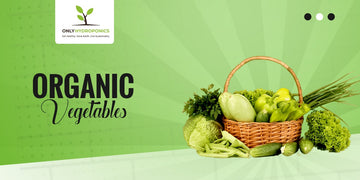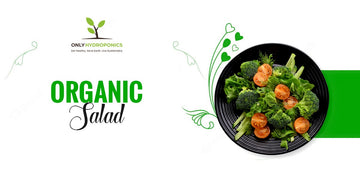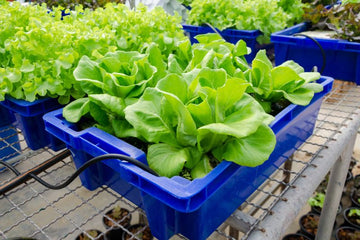Why Is Healthy Eating Important?
Healthy eating is essential for maintaining good health and preventing chronic diseases. A balanced healthy diet that includes a variety of fruits, vegetables, lean proteins, whore grains, and healthy fats can provide the nutrients our bodies need to function correctly.
A healthy diet can help to reduce the risk of chronic diseases such as heart disease, diabetes, and cancer, maintain weight and improve overall energy and mental clarity.
Eating various healthy foods can also help support the immune system, promote healthy digestion, and reduce inflammation in the body. By prioritizing healthy eating, we can improve our quality of life. You can eat healthy by choosing organic veggies.
What Are Organic Vegetables?
Organic vegetables are vegetables that have been grown without the use of fertilizers, pesticides, or other chemicals. They are produced using natural methods, such as composting, crop rotation, and the use of beneficial insects, to maintain soil fertility and control pests.
Organic veggies are also grown using non-GMO seeds, and they are not treated with radiation, which is used to kill bacteria and extend the shelf life of non-organic produce.
Organic farming practices promote the health of the soil, the ecosystem, and the consumer. Organics are becoming increasingly popular among health-conscious consumers who want to minimize their exposure to harmful chemicals and support sustainable agriculture.
How Can Organic Vegetables Benefit You?
Organic vegetables offer a range of benefits that make them an excellent choice for health-conscious consumers. Here are some of the key benefits of organic vegetables:
- Reduced exposure to harmful chemicals: One of the main benefits of organic vegetables is that they are grown without pesticides and fertilizers.
- This means that consumers are less likely to be exposed to harmful chemicals that can affect their health. Research has shown that pesticide exposure and other chemicals can be linked to health problems such as cancer, reproductive issues, and developmental delays.
- Higher nutrient content: Studies have shown that organic vegetables may contain higher levels of nutrients than conventionally grown vegetables.
- This is because organic farming practices focus on building healthy soil, which can lead to plants with higher nutrient content. For example, organic vegetables may contain higher levels of minerals, vitamins, and antioxidants than conventionally grown vegetables.
- Better for the environment: Organic farming practices promote soil health and biodiversity, which can help to reduce soil erosion, conserve water, and support beneficial insects and wildlife. Organic farming also reduces the number of synthetic chemicals released into the environment, which can help reduce pollution and protect the health of ecosystems.
- Fresher - Just after harvest, food begins to lose nutrition. This is common with both conventional and organic food. Organic food survives as long as regular food since it has no preservatives. As a result, organic food is sold very soon after it is picked, making it the fresher option.
- No genetically modified organisms (GMOs): Organic vegetables are not genetically modified, meaning consumers can feel confident that they are eating food that has not been genetically altered. While the safety of GMOs is still a matter of debate, many consumers prefer to avoid them.
- Better taste: Organic vegetables have a better taste than conventionally grown vegetables. This may be because organic farming practices focus on building healthy soil, which can lead to more flavourful produce. In addition, organic vegetables are often picked closer to their peak ripeness, which can also contribute to their superior taste.
- Support for sustainable agriculture: By choosing to buy organic vegetables, consumers are supporting farmers who are committed to sustainable agriculture practices that promote the health of the soil, the environment, and the consumer. This can help ensure that future generations access healthy, nutritious food.
There are many benefits to choosing organic vegetables. They offer a healthier and more environmentally sustainable alternative to conventionally grown vegetables, and they can also taste better and contain more nutrients.
By buying organic vegetables, consumers can support sustainable agriculture practices and promote their and the planet's health.




